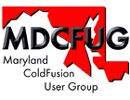 |
 |
 |
|
|||||||||||||||||
 |
|
|||||||||||||||||||
|
 Speakers
Speakers
Charlie Arehart Jo Belyea-Doerrman Tim Buntel Raymond Camden Christian Cantrell Sandra Clark Joey Coleman Sean Corfield Robert Diamond Michael Dinowitz Steve Drucker David Epler Joseph Flanigan April Fleming Ben Forta Shlomy Gantz Mark Gorkin John Hamman Hal Helms Simon Horwith Larry Hull Jeff Houser Chafic Kazoun Matt Liotta Tom Muck Rey Muradaz Nate Nelson Samuel Neff Jeff Peters Bogdan Ripa Neil Ross Margarita Rozenfeld Stephen Shapiro Michael Smith Geoff Snowman Jeff Tapper Dave Watts
|
|
||||||||||||||||||
|
|
| 1 | 2 | 3 | 4 | 5 | 6 | 7 | 8 | 9 | 10 | 11 | 12 | 13 | 14 | 15 | 16 | 17 | 18 | 19 | 20 | 21 | 22 | 23 | 24 | 25 | 26 | 27 | 28 | 29 | 30 | 31 | 32 | 33 | 34 | 35 | 36 | 37 | 38 | 39 | 40 | 41 | 42 | 43 | 44 | 45
Back To Interview list Michael Smith: I am talking with Simon Horwith in London about his talk "Welcome to CF" in the CF Bootcamp track of CFUN-04. Why should programmers new to ColdFusion come to this session? Simon Horwith: This presentation starts right at the beginning. It focuses on the basics of development - namely creating and using variables. A solid foundation in these skills is essential for all developers, and it is the logical place for new developers to begin. Besides, I'm a nice guy... it'll be a fun session. MS: So are there any Pre-requisites to come to your talk? SH: No - not really. Just an interest in learning about the absolute basics of programming with ColdFusion. MS: What will you tell people about what you can do with ColdFusion? SH: I will talk about what ColdFusion is and how it works... as well as the syntax and rules governing the use of variables in ColdFusion pages. MS: So what in your view is ColdFusion? SH: ColdFusion is the fastest and easiest way to develop Java applications. It is the easiest way to develop web-based software in general. It makes it easy to search and update databases via the web for ecommerce and other applications. MS: What kinds of programs can beginners write in ColdFusion? SH: With very little effort, beginners can display database data in web pages, create forms that allow people to add new information to their database, and so much more. MS: So how popular is ColdFusion? What kind of organizations are using it? SH: ColdFusion is extremely popular. There is no one kind of organization using it - they range from small "Mom and Pop" companies that need to get a little bit of data on the web, to large enterprise companies like IBM that are building massive n-tier applications for enterprise use. It is also used extensively across a large number of government departments and associations. MS: Why would you pick ColdFusion over other web programming languages such as Java, PHP, PERL or ASP? SH: Every language has its strengths and weaknesses. ColdFusion excels above the competition in that it is very easy to learn and to get immediate results. This is especially true when it comes to presenting database data on the web. Other languages offer some of the same functionality, but none of them has all of the functionality, ease of use, and support (across so many platforms) as ColdFusion. The development community is also a major factor - we're a very tight-knit and supportive group. MS: Will people be able to write their first ColdFusion program after coming to your talk? SH: Yes they will. You can't expect to be ready to develop very complex applications after only 45 minutes, but you will go from knowing nothing (or next to nothing) to understanding the fundamentals well enough to begin creating dynamic pages that do things which may have even been intimidating before attending the session. You will have all of the knowledge they need to develop your first basic program. You will understand how variables work, how they are passed from page to page, and how to interact with databases. MS: Sounds like a great way for people new to ColdFusion to start off the conference! |
 |
|
|||||||||||||||||
| Home | Topics | Speakers | Directions | Spread the Word | Register |
© Copyright TeraTech Inc 2003
405 East Gude Drive Ste 207 Rockville MD 20850
301.424.3903 Fax 301.762.8185 www.teratech.com
Please send comments/questions to [email protected]
For sponsorships or registration, please send comments/questions to liz-cfun04 (at) teratech.com


































